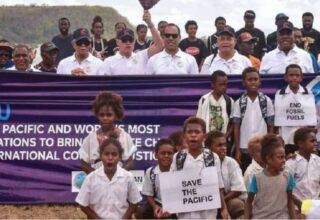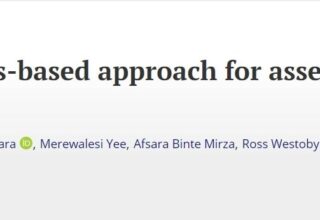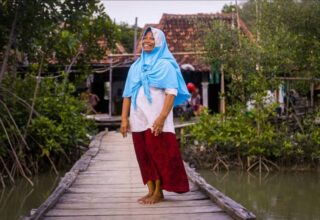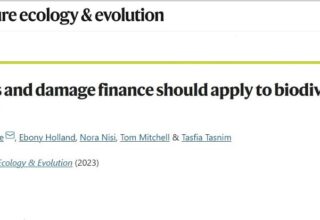This article is part of a Special Issue, “Climate Finance Justice: International Perspectives on Climate Policy, Social Justice, and Capital,” edited by Lauren Gifford and Chris Knudson
Abstract
How much finance should be provided to support climate change adaptation and by whom? How should it be allocated, and on what basis? Over the years, various actors have expressed different normative expectations on climate finance. Which of these expectations are being met and which are not; why, and with what consequences? Have new norms and rules emerged, which remain contested? This article takes stock of the first 25+ years of adaptation finance under the United Nations Framework Convention on Climate Change (UNFCCC) and seeks to understand whether adaptation finance has become more justly governed and delivered over the past quarter century. We distinguish among three “eras” of adaptation finance: (1) the early years under the UNFCCC (1992–2008); (2) the Copenhagen shift (2009–2015); and (3) the post-Paris era (2016–2018). For each era, we systematically review the justice issues raised by evolving expectations and rules over the provision, distribution, and governance of adaptation finance. We conclude by outlining future perspectives for adaptation finance and their implications for climate justice.
Article Link
Mizan Khan, Stacy-ann Robinson, Romain Weikmans, David Ciplet, J. Timmons Roberts
-
Strengthening Loss and Damage Narrative: Building cohesive voices with policymakers and civil society in Bangladesh
Bangladesh has been striving for years to shift its narrative from being climate vulnerabi… -
VANUATU AND BEYOND | Loss & Damage Costs are Exploding and the Politics are too: Vanuatu’s island solutions at the UNFCCC and beyond
Back in the early 1990’s the Pacific Island nation of Vanuatu, a founding member of the Al… -
Movement mourns ‘driving force for climate justice’ Saleemul Huq
Bangladeshi scientist and campaigner Saleemul Huq attended every UN climate summit and cha…
-
Call for Youth Innovation Fund – Sponsoring Green Idea/Campaign -2024
We are excited to launch the “Youth Innovation Fund” for year 2024 and welcoming applicati… -
What Bangladesh can do before COP29
This year’s climate summit—the 28th Conference of the Parties for climate change (CO… -
Saleemul Huq (1952–2023)
Saleemul (Saleem) Huq was one of the ten most influential climate experts, Advisor to the …
-
Valuing a values-based approach for assessing loss and damage
Anthropogenic climate change is causing widespread losses and damages to what people value… -
Eight ways Asia is using nature to adapt to the climate crisis
The Asia-Pacific region is no stranger to climate change. In just the last few months, it … -
Loss and damage finance should apply to biodiversity loss
Global biodiversity loss has been disproportionately driven by consumption of people in ri…
Check Also
Strengthening Loss and Damage Narrative: Building cohesive voices with policymakers and civil society in Bangladesh
Bangladesh has been striving for years to shift its narrative from being climate vulnerabi…









